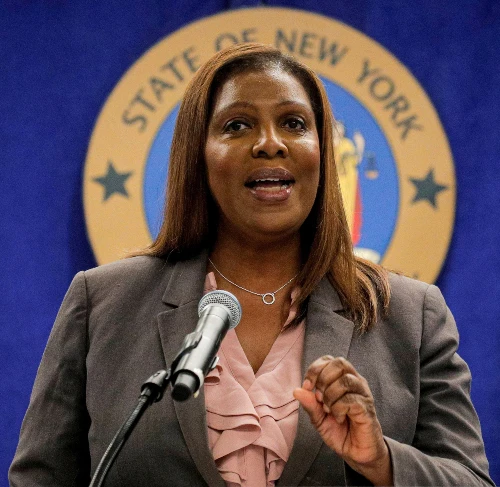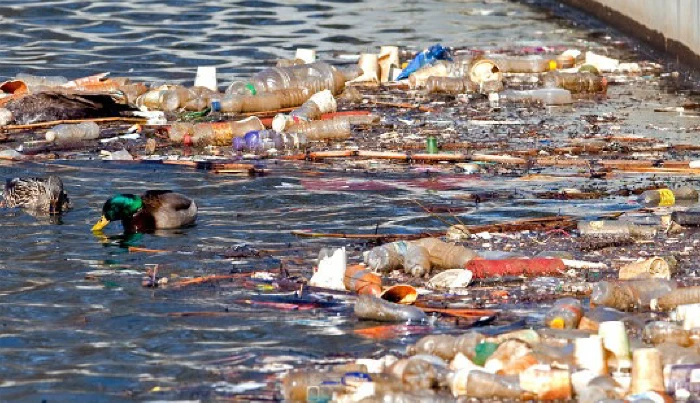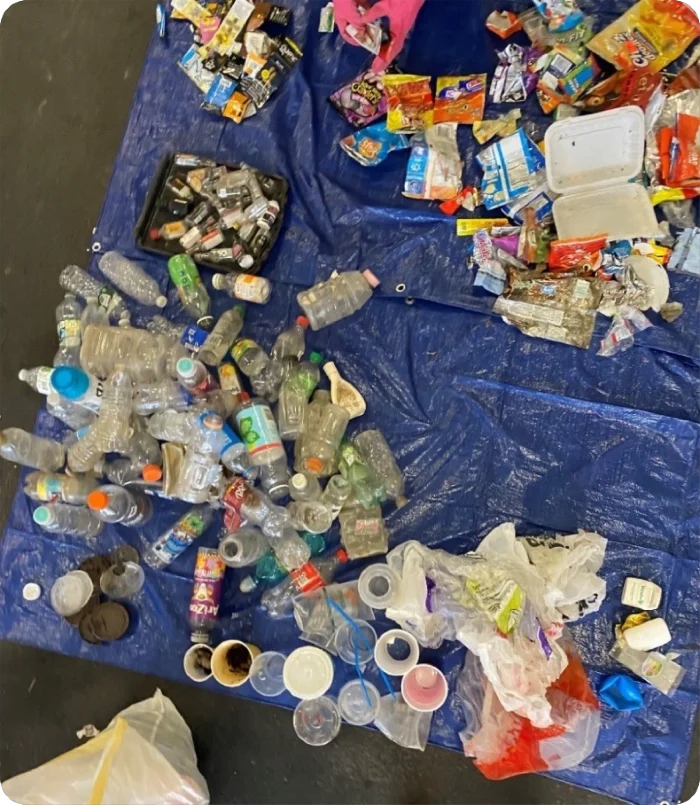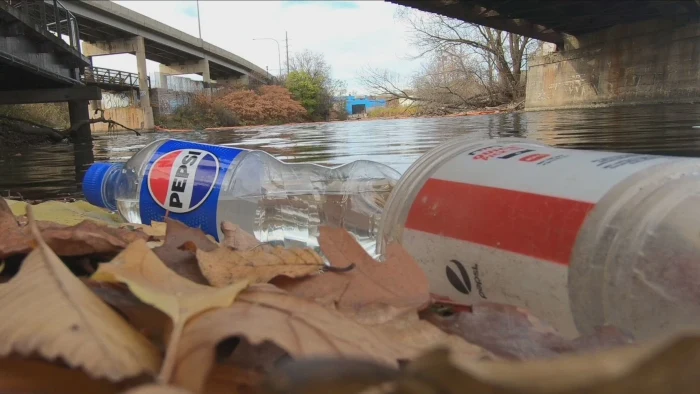As dawn breaks over the serene Buffalo River, a troubling sight unfolds along its shores. Littered amidst the natural beauty are hundreds of discarded PepsiCo products, a stark reminder of the environmental and public health crisis brewing in our midst. This picturesque river, a lifeline for the local community, now bears the brunt of our disposable culture.
In a decisive response, New York Attorney General Letitia James has taken a stand against this tide of pollution. Her lawsuit against PepsiCo is more than a legal battle; it’s a fight for the soul of our environment, charging the beverage giant with not only harming the public but also failing to inform consumers about the profound environmental and health risks associated with their ubiquitous single-use plastic packaging. This legal action opens a new chapter in the struggle to protect our natural spaces and ensure a healthier future for all.

“No company is too big to ensure that their products do not damage our environment and public health. All New Yorkers have a basic right to clean water, yet PepsiCo’s irresponsible packaging and marketing endanger Buffalo’s water supply, environment, and public health,” said Attorney General James. “No one should have to worry about plastics in their drinking water, plastic garbage littering their scenic riverfront, or plastic pollution harming wildlife.”
The lawsuit filed by New York Attorney General Letitia James against PepsiCo on November 15 reveals a compelling and concerning narrative about the impact of the company’s single-use plastic packaging on the environment and public health, particularly in relation to the Buffalo River.
This lawsuit has brought to light critical issues regarding plastic pollution, its effects on human health and wildlife, and the role of major corporations in contributing to this environmental crisis.

PepsiCo’s Contribution to Plastic Pollution
PepsiCo, a giant in the food and beverage industry, is notably the largest identifiable contributor of plastic waste along the Buffalo River, and that says something!
In 2022, the company produced approximately 2.6 million metric tons of plastic packaging, an amount equivalent to over seven Empire State Buildings.
PepsiCo’s products, including beverages and snack foods, are predominantly packaged in single-use plastics, such as polyethylene terephthalate (PET), polypropylene (PP), high-density polyethylene (HDPE), and low-density polyethylene (LDPE). These materials are found in abundance along the shores of the Buffalo River and its tributaries, contributing significantly to the pollution in the area.
Pepsi Brands That Are Contributing To The Pollution
- Beverage Brands
- Pepsi products
- Gatorade
- Mountain Dew
- Mug Root Beer
- Propel
- Aquafina water
- Brisk
- Pureleaf teas
- Beverage Brands
- Snack Food Brands
- Lay’s potato chips
- Doritos tortilla chips
- Fritos corn chips
- Cheetos cheese-flavored snacks
- Santitas tortilla chips
- Sun Chips multigrain chips
- Tostitos tortilla chips
- Snack Food Brands
Impact on the Environment and Public Health
The environmental impact of PepsiCo’s plastic packaging is profound. Once discarded, these plastics fragment into microplastics and nanoplastics, causing widespread contamination. These microplastics have been detected in the City of Buffalo’s drinking water supply and in Lake Erie, from which the city sources its water. They’ve also been found in popular game fish species in the area, posing a direct threat to public health through consumption.
The presence of microplastics in the environment can attract pathogens and contaminants, including heavy metals and persistent organic pollutants, leading to a range of health harms. Some plastics leach chemical additives that have been linked to various health issues, including early puberty, reduced sperm counts, obesity, and increased cancer rates. Additionally, exposure to these plastics can cause biochemical and structural damage in humans and animals, affecting the liver, excretory, and reproductive systems, among others.

Legal Action and Corporate Accountability
Attorney General James’ lawsuit seeks to hold PepsiCo accountable for its role in this environmental crisis. The State of New York is pursuing declaratory, injunctive, and monetary relief to address the harms caused by PepsiCo’s plastic packaging. The lawsuit alleges that the company hasn’t only contributed significantly to the plastic pollution but also failed to warn the public of the risks associated with its packaging.
Furthermore, it accuses PepsiCo of misleading the public about its efforts to combat plastic pollution while continuing to increase the production and sale of single-use plastics.
The Buffalo River’s History and Restoration Efforts
The Buffalo River, once considered one of the most polluted rivers in the United States, has seen significant restoration efforts over the years. These efforts include removing contaminated sediment, creating natural fish-sheltering structures, restoring aquatic vegetation, and improving water quality.
The river and its shoreline have become popular for various recreational activities, reflecting the community’s commitment to environmental protection.
In summary, the lawsuit against PepsiCo highlights the urgent need for responsible corporate practices in packaging and waste management. The case underscores the broader issue of plastic pollution and its far-reaching impacts on ecosystems, wildlife, and human health, emphasizing the critical role of legal and regulatory measures in safeguarding the environment and public welfare.
More To Discover
- Republican Senate Candidate’s Family Egg Business Found Liable in Price-Fixing Conspiracy
- Great Lakes Ice Cover Lowest In 50 Years: Why It’s a Major Environmental Concern
- Labor Crisis Sparks AI Boom on US Farms: Can They Save Our Food Supply?
- Lab-Grown Oil: The Next Frontier in Sustainable Food Production?
Key Points From The Official Lawsuit Filing
The lawsuit filed against PepsiCo gives us a compelling and detailed account of the company’s contribution to plastic pollution and its impact. We compiled the key takeaways from the 39-page complaint so you don’t have to read it:
- Pervasive Plastic Pollution: PepsiCo is identified as the single largest identifiable contributor to plastic waste along the Buffalo River, with its single-use plastic beverage bottles, bottle caps, and snack food wrappers being the most abundant forms of plastic waste in the area.
- Microplastic and Nanoplastic Fragmentation: PepsiCo’s plastic packaging, once discarded, breaks down into microplastics and nanoplastics, posing significant environmental and health risks.
- Substantial Production of Plastic Packaging: In 2022, PepsiCo produced approximately 2.6 million metric tons of plastic packaging, a significant contributor to plastic pollution in urban watersheds like the Buffalo River.
- Awareness of Environmental Impact: PepsiCo has acknowledged the plastic pollution crisis and the environmental impacts of its packaging on its website yet continues to produce large quantities of single-use plastics.
- Public Misleading and Failure to Warn: The lawsuit alleges that PepsiCo has failed to adequately warn the public about the potential harm of its packaging and has misled the public about its efforts to combat plastic pollution.
- Ineffective Solutions and Public Nuisance: PepsiCo has been accused of contributing to public nuisance through its continued production of single-use plastic packaging, with ineffective solutions proposed to address the issue.
- Impact on Drinking Water and Health: Microplastics from PepsiCo’s products have been found in the drinking water supply of Buffalo, posing potential health risks to the community.
- Contamination of Wildlife and Ecosystems: Microplastics and nanoplastics from PepsiCo’s products have been detected in various wildlife species and are known to cause harm to freshwater ecosystems.
- Legal Claims and Relief Sought: The lawsuit seeks declaratory, injunctive, and monetary relief to address the harms caused by PepsiCo’s plastic packaging, including abatement of the public nuisance and implementation of measures to reduce plastic pollution.
- Extensive Revenue Despite Pollution Issues: Despite the pollution issues, PepsiCo generated more than $86 billion in net revenue in 2022.
You can read the complete lawsuit filing by clicking here.



















